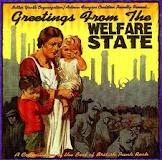 Listening to the debates on the UK’s Welfare Bill this morning, I was struck by the similarities between this debate and the endless arguments about whether the UK should give foreign aid.
Listening to the debates on the UK’s Welfare Bill this morning, I was struck by the similarities between this debate and the endless arguments about whether the UK should give foreign aid.
Ever since the Elizabethans institutionalised the idea of the ‘deserving’ and the ‘undeserving’ poor into the system of poor relief, governments have had two main public reasons for giving people money (here or abroad): because they need it (see, for example, humanitarian aid or child benefit), or because it will do some wider good (like help them find a job, or promote economic growth), and two reasons for taking it away: becasue they don’t really need it (the ‘undeserving poor’ that right-wing pundits are so keen to uncover), or because taking it away is in their own best interests (so they can, in the jargon, ‘stand on their own two feet’). Welfare reforms, aid budgets, all are subject to this remorseless political logic.
There are two things which are particularly frustrating about this rather sterile argument. Firstly, it’s conducted entirely on the spending side, while in fact the fairness of a system depends both on how money is raised and how it is spent. Debates on spending are often conducted as if choices were all about distribution within a group of very poor people.
Iain Duncan Smith, speaking for the government on the BBC’s Today programme this morning, argued that the welfare bill will seem fairer to people in work who are earning low incomes and who don’t want to see their taxes used to provide the unemployed with higher incomes than they themselves enjoy. But if public spending really has come down to dividing up tax revenues from and benefit payments to people who are at or below the average wage, then the answer is not welfare reform to change the distribution of the spend, but tax reform to change the distribution of the revenue.
Of course poor working families should not be paying for poor non-working families, just as poor working families should not be paying for poor families in other countries. The whole point of a redistributive tax system is that it’s the wealthy who pay for the poor. If this is really the issue, then change the tax system rather than tinkering with spending.
My second bugbear is the myth of the perfect system. People arguing on both sides of the debate about the welfare bill and discussions about aid often appear to assume that there is some possiblity of a perfect system out there, which will solve the short-term problems of poverty without any risk of long-term distortions to people’s behaviour.
Well there isn’t. Rather than looking for perfection, it might be better to think about both debates in terms of different types of mistakes various systems might make. Is it better to err on the side of generosity, and perhaps risk giving aid or welfare to a few people who don’t really need it, or is it better to err on the side of meanness, and risk cutting off aid or welfare to people who really do need it? Which kind of mistake can we live with?
Governments in this corner of the world have been struggling with this idea, at home and abroad, for over 400 years, since the first Poor Law was passed in England in 1601. There are real practical questions about how to manage both aid and welfare, how to make the most of scarce resources, and how to build handouts into a system of longer term improvements in people’s lives. But going down false, politically expedient avenues won’t help anybody.



